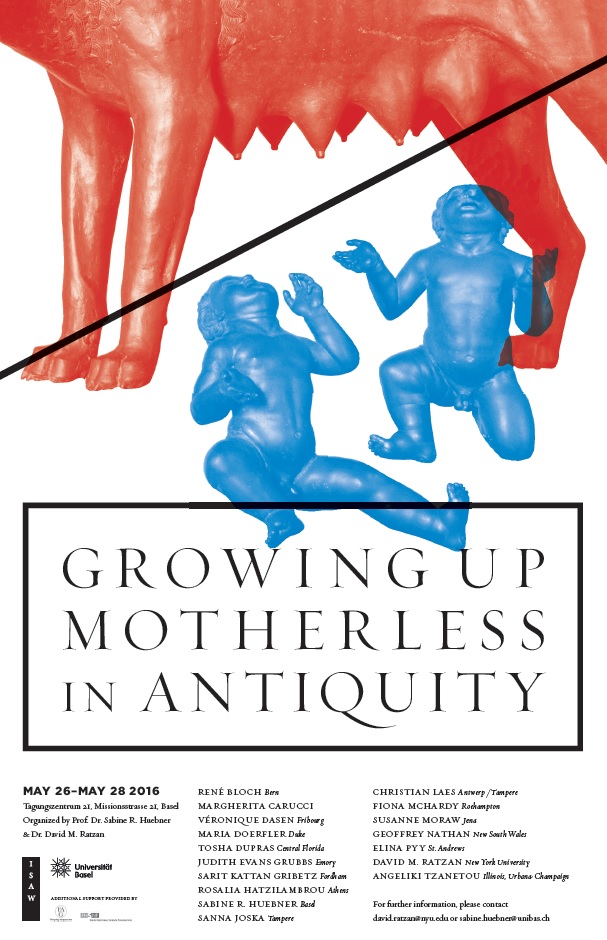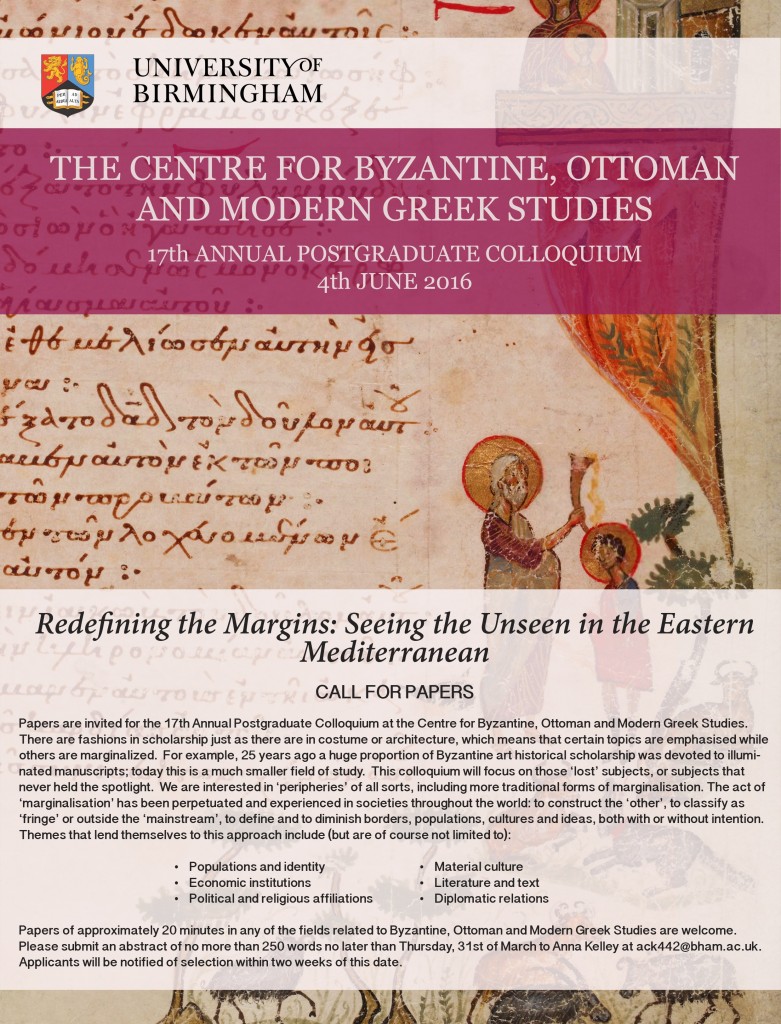« Growing up Motherless in Antiquity »
Basel/Switzerland from May 26-28 2016
The last forty years have witnessed a vast reclamation project in ancient history, as scholars have worked to recover the lives of historically muted groups, particularly those of women and children. The result is an impressive body of work collecting the traces ancient women and children have left behind, as well as a sophisticated epistemology of the biases, gaps, and silences in the historical record. From this perspective, the absence of ancient mothers has represented an ineluctable reality and a methodological hurdle, but rarely a subject of study in its own right. Yet the evidence suggests that mother absence was not merely a secondary artifact of bias or artistic and historiographical conventions; it was also a primary condition of antiquity, one whose root causes, social articulations, and psychological effects have never been fully described or explored, even as it had a profound effect on ancient family life and the experience of childhood.
Attendance is free of charge, however, please contact Sabine Huebner (sabine.huebner@unibas.ch) for registration or any questions.
Program of the conference:
THURSDAY, MAY 26, 2016
15:30 SABINE R . HUEBNER (Basel ): Welcome and Introductory remarks
PANEL 1: DEMOGRAPHY AND ITS CONSEQUENCES
16:00 TOSHA DUPRAS (Central Florida): Maternal mortality and orphans: A bioarchaeological assessment of growing up motherless in ancient Egypt
16:30 CHRISTIAN LAES (Antwerp / Tampere): Crucial and vital decisions: Caring for infants after mother’s death in childbed
17:00 DAVID M. RATZAN (New York University): The economics and outsourcing of ancient mother-work
17:30 General Discussion
18:00 Reception at Departement für Altertumswissenschaften (“Rosshof”), Petersgraben 51
FRIDAY, MAY 27, 2016
PANEL 2: THE JEWISH EXPERIENCE
9:30 RENÉ BLOCH (Bern): Moses: Motherless with two mothers
10:00 SARIT KATTAN GRIBETZ (Fordham): Mourning for mother: The topography of mother absence in rabbinic literature and piyyut
10:30 General Discussion
11:00 Coffee Break
PANEL 3: THE GREEK EXPERIENCE
11:30 FIONA McHARDY (Roehampton): The risk of violence towards motherless children in ancient Greece
12:00 ROSALIA HATZILAMBROU (Athens): Being motherless in classical Athens: The evidence of Attic forensic oratory
12:30 Lunch
14:00 ANGELIKI TZANETOU (Illinois, Urbana-Champaign): Motherly absence in Euripides’ reunion plays
14:30 SUSANNE MORAW ( Jena): Absent mothers by choice: Upper class women in classical Attic vase painting
15:00 General Discussion
15:30 Coffee Break
PANEL 4: ROMAN REALITIES
16:00 SABINE R . HUEBNER (Basel ): The last will of Alcestis: Motherless children and their widowed fathers in Roman Egypt
16:30 JUDITH EVANS GRUBBS (Emory): A long way from home: Motherless children in slave sale contracts
17:00 VÉRONIQUE DASEN (Fribourg ): Who cares for motherless children? Wet nursing in the Roman world
17:30 General Discussion
20:00 Dinner
SATURDAY, MAY 28, 2016
PANEL 5: ROMAN REPRESENTATIONS
10:00 ELINA PYY (St. Andrews): Growing up motherless, growing up to be a hero: Motherless children in Virgil’s Aeneid
10:30 MARGHERITA CARUCCI: The journey of a motherless child in the decoration of the Roman house
11:00 SANNA JOSKA (Tampere): Motherless empire? The Antonine dynasty, imperial children, and imperial policy at the death of Faustina the Elder
11:30 General Discussion
12:00 Lunch
PANEL 6: LATE ANTIQUITY
13:30 GEOFFREY NATHAN (New South Wales): The wicked stepmother in late antique imperial politics: A reevaluation
14:00 MARIA DOERFLER (Duke): Wayward mothers, saintly children: Late ancient reading strategies in pursuit of the absent parent
14:30 Discussion
15:00 DAVID M. RATZAN (New York University): Closing remarks
Flyer ici.


